
I am an unabashed, die-hard fan of the now-concluded FX TV show "Atlanta." For four seasons, I tuned in to watch the adventures of Alfred (aka "Paper Boi"), Earn, and Darius, mainly because I love strange stories, particularly shows that are slightly off-kilter, like "Twin Peaks." In fact, Donald Glover, the creator of "Atlanta," once described his show as "Twin Peaks' with rappers." I have, at times, found myself obsessing over what I perceived to be surrealism on the show, only to question if it was more magical realism than surrealism, then wondering if there was a real difference that extended beyond academic semantics-at least on a practical level. Of course, this level of analysis could very well have been its own "Atlanta" episode, if the show was still running.
In the simplest of explanations, magical realism is when the unusual or fantastical happens in a realistic universe. For example, imagine a normal neighborhood where children are playing, and one of the kids flies into the sky, while the others look on as if nothing unusual has happened. With surrealism, though, which has its roots in the art movement of the same name, stories tend to circumnavigate the usual human consciousness, instead drawing from the unconscious or the subconscious, and create a fantastical setting in which anything can happen. Surrealism is often referred to as "dreamlike" in its execution. Consider for a moment Salvador Dalí's painting The Persistence of Memory, which features a variety of melting clocks hanging over various objects, and you'll understand what I mean.
This story is from the July - August 2024 edition of Writer’s Digest.
Start your 7-day Magzter GOLD free trial to access thousands of curated premium stories, and 9,000+ magazines and newspapers.
Already a subscriber ? Sign In
This story is from the July - August 2024 edition of Writer’s Digest.
Start your 7-day Magzter GOLD free trial to access thousands of curated premium stories, and 9,000+ magazines and newspapers.
Already a subscriber? Sign In

Writing for a Warming World - Imagining the overwhelming, the ubiquitous, the world-shattering.
Climate change is one of those topics that can throw novelists—and everyone else—into a fearful and cowering silence. When the earth is losing its familiar shapes and consolations, changing drastically and in unpredictable ways beneath our feet, how can we summon our creative resources to engage in the imaginative world-building required to write a novel that takes on these threats in compelling ways? And how to avoid writing fiction that addresses irreversible climate change without letting our prose get too preachy, overly prescriptive, saturated with despair?

Kids' Author Meg Medina Inspires Readers
WD chats with the National Ambassador of Young People’s Literature.
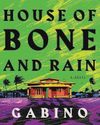
The Horrors of Grief
Whether hot off the presses or on the shelves for years, a good book is worth talking about.
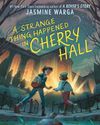
The Mystery of Growing Up
New York Times-bestselling author Jasmine Warga tackles a new genre with her signature blend of empathy for her readers, agency for her characters, and the belief that art is the great connector.

Education
Even if it's not your thing, you're probably familiar with the term dark academia.

A Do-Over Romance
Karin Patton, the first-place winner of the 24th Annual Writer's Digest Short Short Story Awards, shares a funny story about secondchance love and a brief Q&A.
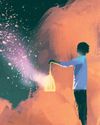
Everyday Wonder
How to mine awe from the mundane
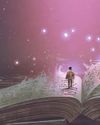
From Ordinary to Extraordinary
Unveil the hidden beauty in the facts and transform your nonfiction with the power of wonder.

Childhood: Our Touchstone for Wonder
How to get in touch with Little You and create big new work for today.
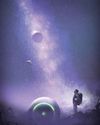
Agent Roundup
22 agents share details, about what kind of writing will pique their interest and offer tips for querying writers...